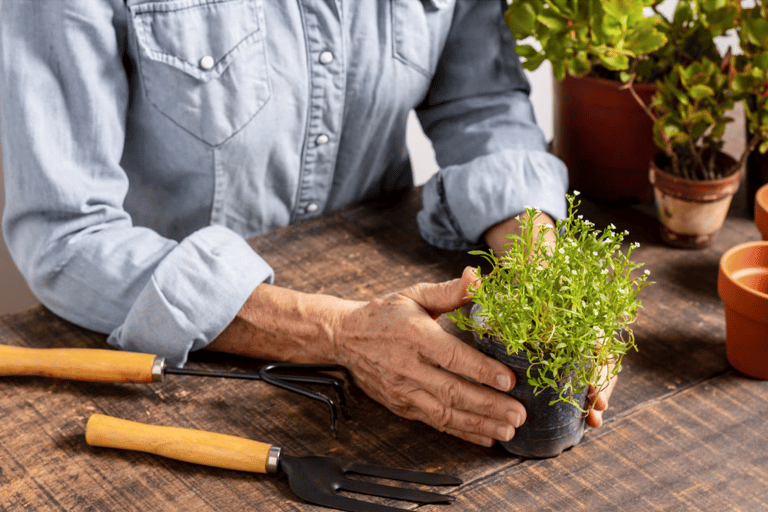Promoting Mental Wellness for Seniors: Exploring Hobbies and Activities
Promoting mental wellness for seniors through hobbies and activities is a valuable aspect of in-home care. By encouraging seniors to pursue their interests, caregivers can enhance their quality of life, cognitive abilities, emotional well-being, and overall mental wellness. By incorporating hobbies and activities into their daily lives, seniors can find joy, purpose, and a renewed sense of vitality.
INFORMATIVE
Erlyn A. Pinkston
6/11/20233 min read
As we age, maintaining mental wellness becomes increasingly important for our overall well-being. Engaging in hobbies and activities tailored to the interests and capabilities of seniors can have a profound impact on their mental health, cognitive function, and overall quality of life. In this blog post, we will explore the benefits of promoting mental wellness through hobbies and activities for seniors, and provide practical suggestions for incorporating these activities into their daily lives. Let's delve into the various ways in which seniors can nurture their minds and find joy through meaningful engagement.
Understanding the Importance of Mental Wellness for Seniors
Mental wellness encompasses emotional, psychological, and cognitive well-being and is crucial for seniors to maintain a fulfilling and independent lifestyle. As we age, certain factors such as retirement, the loss of loved ones, or limited mobility can impact our mental health and lead to feelings of isolation, depression, and cognitive decline. Engaging in hobbies and activities tailored to seniors' interests can provide an avenue for self-expression, social interaction, and cognitive stimulation, promoting mental wellness and enhancing the overall quality of life.
The Benefits of Hobbies and Activities for Mental Wellness
Participating in hobbies and activities can have numerous benefits for seniors' mental wellness. These activities promote cognitive engagement, boost mood, reduce stress and anxiety, enhance memory and concentration, and foster a sense of purpose and accomplishment. By incorporating enjoyable and meaningful activities into their daily lives, seniors can experience improved mental well-being and maintain cognitive function.
Tailoring Hobbies and Activities to Individual Interests and Abilities
When considering hobbies and activities for seniors, it is crucial to take into account their individual interests, capabilities, and preferences. Tailoring activities to their specific needs ensures a higher level of engagement and enjoyment. Some popular hobbies and activities for seniors include arts and crafts, gardening, music, reading, puzzles, exercise, and social outings. By aligning activities with their interests, seniors can find purpose, meaning, and fulfillment, promoting mental wellness in the process.
Incorporating Social Interaction and Community Engagement
Social interaction plays a vital role in promoting mental wellness for seniors. Participating in group activities, joining clubs or organizations, or volunteering in the community can foster social connections, reduce feelings of isolation, and enhance overall mental well-being. In addition, engaging in activities with family members, friends, or caregivers can strengthen relationships and provide a support network.
Cognitive Stimulation and Brain Health
Engaging in mentally stimulating activities is crucial for maintaining cognitive function and brain health. Activities that challenge the mind, such as puzzles, crosswords, memory games, or learning new skills, can help seniors keep their minds sharp and reduce the risk of cognitive decline. By regularly exercising their cognitive abilities, seniors can maintain mental agility and enhance their overall mental wellness.
Encouraging Physical Activity for Mental Well-being
Physical activity and exercise play a significant role in promoting mental wellness for seniors. Regular exercise has been shown to improve mood, reduce anxiety and depression, and enhance cognitive function. Encouraging seniors to incorporate physical activities such as walking, yoga, tai chi, or dancing into their routine can have dual benefits for both their physical and mental well-being.
Practical Tips for Incorporating Hobbies and Activities
Here are some practical tips for incorporating hobbies and activities into the daily lives of seniors:
Start with their interests: Discover what activities or hobbies they have enjoyed in the past or have shown an interest in. This can serve as a foundation for selecting suitable activities.
Adapt activities to abilities: Modify activities as needed to accommodate physical limitations or cognitive changes. Ensure that activities are accessible and enjoyable for each individual.
Create a routine: Establish a consistent schedule for engaging in hobbies and activities. This provides structure and anticipation, promoting regular participation and mental wellness.
Seek community resources: Explore local senior centers, libraries, or community organizations that offer programs and activities specifically designed for seniors.
Involve family and friends: Encourage family members and friends to participate in activities together, fostering social connections and shared experiences.
Conclusion
Promoting mental wellness for seniors through hobbies and activities is a powerful tool for enhancing their overall quality of life. By engaging in enjoyable and meaningful activities, seniors can nurture their minds, maintain cognitive function, and experience a greater sense of happiness and fulfillment. The benefits of mental wellness extend far beyond the individual, positively impacting their relationships, social interactions, and overall well-being. Let us celebrate the journey of mental wellness for seniors by encouraging and supporting them in their pursuit of fulfilling hobbies and activities.
References:
National Institute on Aging. (2019). Staying Engaged: Healthier Older Adults. Retrieved from https://www.nia.nih.gov/health/staying-engaged-healthier-older-adults
Alzheimer's Association. (2022). Stay Mentally and Socially Active. Retrieved from https://www.alz.org/help-support/brain_health/stay_mentally_and_socially_active






Our Links
Mailing Address
P.O. Box 115 Garden Grove
CA 92842-115
